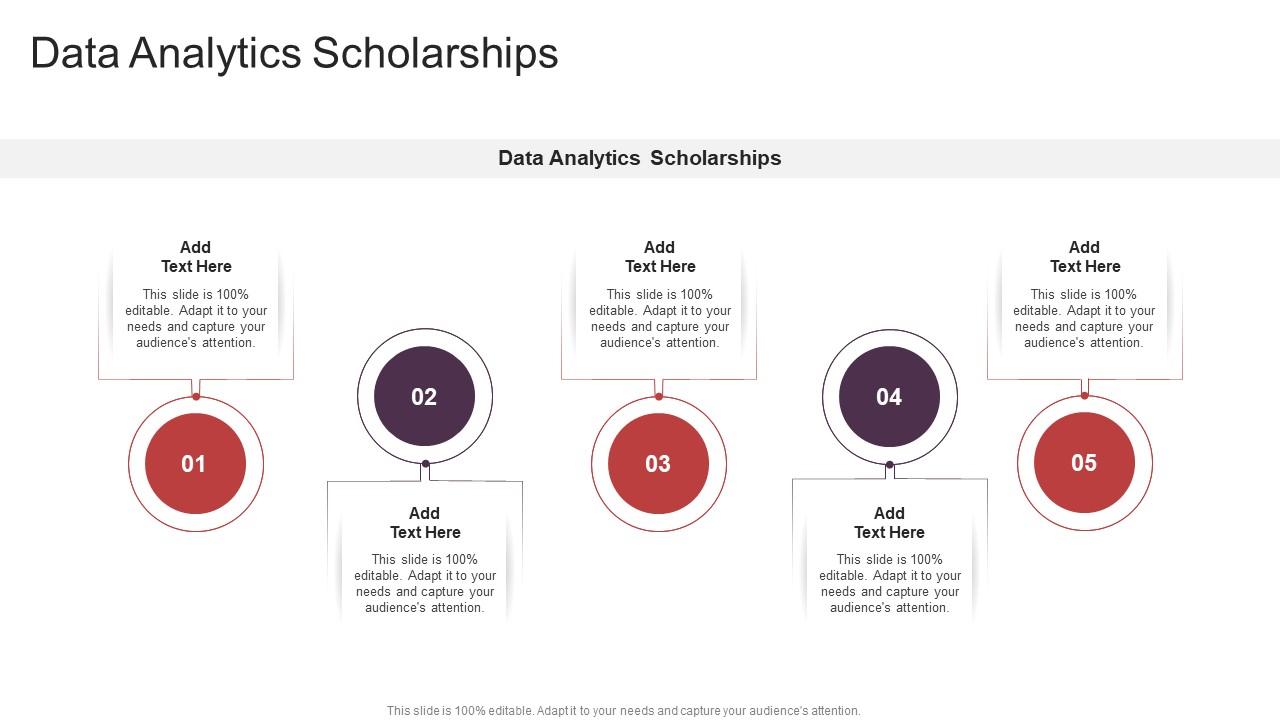
My Unlikely Path: How Scholarships Opened the Door to Data Analytics
I remember sitting at my old kitchen table, the light from a bare bulb casting long shadows across my worn-out textbooks. The dream of diving into data analytics, of understanding the stories numbers could tell, felt impossibly distant. I was fascinated by how data could predict trends, solve problems, and essentially make sense of the chaotic world around us. But the price tag for the education? That was a story I wasn’t sure I could write a happy ending to. It felt like standing at the foot of a massive mountain, knowing the summit held incredible views, but having no idea how to even take the first step.
For someone like me, who didn’t come from a background overflowing with financial resources, the idea of pursuing a specialized field like data analytics felt like a luxury. I had heard about university degrees, bootcamps, and online courses, each promising to equip you with the skills needed for a thriving career in data analytics. But each also came with a tuition fee that made my stomach churn. I felt a knot in my chest whenever I imagined telling my family, "I want to study data analytics, and it costs this much." It just wasn’t an option.
Then, one rainy afternoon, while scrolling through forums about learning programming, I stumbled upon a thread discussing "data analytics scholarships." It was like a little light bulb flickered on in my head. Scholarships. Of course! Why hadn’t I thought of them before? It was a moment of pure, unadulterated hope. Could this be the bridge over the financial chasm separating me from my dream?
The thought sparked a fire. I wasn’t just looking for a handout; I was looking for an opportunity to prove myself, to learn, and to contribute. I wanted to understand how to turn raw numbers into meaningful insights, to help businesses make smarter choices, or even to use data for social good. This wasn’t just about a job; it was about a new way of thinking, a powerful skill set that felt incredibly relevant in our increasingly digital world. The more I read about the potential of data analytics, the more convinced I became that this was the path for me. And if scholarships existed, I was going to find them.
My initial search for financial aid data analytics opportunities felt like rummaging through a giant, unorganized library. There were so many places to look, and it was easy to feel overwhelmed. But I learned to break it down. First, I realized that data analytics scholarships weren’t a single, monolithic thing. They came in many shapes and sizes, each with its own specific requirements and benefits.
There were scholarships specifically for undergraduate students, helping them get their foot in the door with a bachelor’s degree in data science, statistics, or a related field. Then, there were master’s data analytics scholarships, often more competitive, aimed at those who already had a foundational degree and wanted to specialize further. These were for folks looking to dive deep into advanced algorithms, machine learning, and big data technologies.
But it wasn’t just traditional university degrees. I quickly discovered a whole new world of bootcamp data analytics scholarships. These were fantastic for someone like me, who might not have had the time or resources for a four-year degree but was eager to jump into the field quickly. Many of these bootcamps, both in-person and online, offered funding or partial scholarships to help cover their intensive, short-term programs. And don’t forget the online data analytics courses scholarships! Platforms like Coursera, edX, and Udacity often have financial aid options or specific scholarship programs for their specialized data analytics tracks. This was particularly appealing because it offered flexibility.
Beyond the program type, I also found scholarships geared towards specific groups. Women in tech, for example, often had dedicated funding to encourage more female representation in STEM fields. There were scholarships for minority students, for international students looking to study data analytics abroad, and even scholarships for veterans transitioning into new careers. Companies, too, often sponsored scholarships as a way to nurture future talent and give back to the community. Big tech companies, financial institutions, and even smaller data-driven startups understood the value of investing in the next generation of data professionals.
So, where did I actually find these elusive scholarships? My first stop was university websites. Every institution with a data analytics program usually lists its own scholarship opportunities. I’d scour their financial aid pages, looking specifically for anything related to "data science," "analytics," "computer science," or "statistics." Many departments also have their own endowments.
Next, I moved on to dedicated scholarship databases. Websites like Fastweb, Scholarship.com, and specific government education portals became my daily browsing destinations. I learned to use very specific search terms: "data analytics scholarships," "funding for data science," "grants for data analysts," "financial support for data analytics education." The trick was to be persistent and try different combinations of words.
I also looked at professional organizations. Groups dedicated to data science, statistics, or technology often have scholarship programs aimed at fostering new talent. Sometimes, these organizations also offered mentorship opportunities alongside financial aid, which felt like an added bonus – a chance to connect with experienced professionals in the field.
And then there were company career pages. Some companies, particularly those heavily reliant on data, offer scholarships or internships that come with financial support. This was a smart move on their part, as it allowed them to identify and train potential future employees early on. I even looked into local community foundations; sometimes, smaller, regional grants existed that were less competitive and specifically designed to help local students pursue higher education or vocational training.
The application process itself felt like a marathon. It wasn’t just about filling out forms; it was about telling my story, articulating my passion, and convincing someone that I was a worthwhile investment.
Research, Research, Research: This was my first and most important lesson. I quickly realized that applying to every single scholarship I found was a recipe for burnout and failure. Instead, I started reading the criteria very carefully. Did I meet the GPA requirement? Was it for my specific academic level (undergraduate, graduate, bootcamp)? Was it open to students from my country or region? Did my career goals align with the scholarship’s mission? By narrowing down my list, I could focus my energy on applications where I had a genuine chance. It saved me a lot of time and heartache.
Crafting Your Story (The Personal Statement/Essay): This was where I truly learned to speak from the heart. Most scholarships required a personal statement or an essay. This wasn’t just about listing achievements; it was about connecting the dots. I had to explain why data analytics mattered to me. What sparked my interest? Was it a particular problem I wanted to solve? A curiosity about how things work? For me, it was the realization that data held the keys to understanding so many of the world’s complex issues, from climate change to public health.
I wrote about my struggles, my curiosity, and my aspirations. I made sure to tie my past experiences, even seemingly unrelated ones, back to my desire to learn data analytics. For example, I talked about a time I organized a community event and how I used simple spreadsheets to track attendance and feedback, which sparked my initial interest in organizing information. It wasn’t fancy, but it showed initiative and a budding analytical mindset. I tried to convey authenticity, to make the reader feel like they knew me and understood my drive. I poured over drafts, editing for clarity, impact, and making sure my voice shone through. I wanted them to hear my story, not just a generic template.
Letters of Recommendation: These felt daunting at first. Who should I ask? How should I ask? I learned to approach people who knew me well academically or professionally – a former teacher who saw my potential in math, a supervisor from a part-time job who could speak to my work ethic. When I asked, I made sure to do it politely and with plenty of notice. I also provided them with everything they needed: my resume, the scholarship requirements, and a brief summary of why I was applying and what I hoped to achieve. This made their job easier and ensured they could write a strong, relevant letter.
Academic Transcripts and CV: These were the straightforward parts. I made sure my transcripts were up-to-date and my CV highlighted any relevant skills or experiences, even if they weren’t directly "data analytics" yet. Any coursework in math, statistics, or even strong problem-solving roles in previous jobs went on there.
Interviews: Some scholarships required an interview. This was usually after the initial application had been reviewed. I treated it like any important conversation. I researched the organization or university, understood their mission, and thought about how my goals aligned with theirs. I practiced answering common questions: "Why data analytics?" "Where do you see yourself in five years?" "What challenges do you anticipate?" The key was to be genuine, enthusiastic, and show that I had thought deeply about my chosen path.
Of course, it wasn’t all smooth sailing. I faced rejections. Plenty of them. Each "no" stung a little, making that mountain seem taller again. But with each rejection, I tried to learn. Did I misinterpret the criteria? Was my essay not strong enough? Did I apply to programs that weren’t the right fit? I became more resilient, more determined. I realized that persistence was just as important as preparation. It was a learning curve, and every application, successful or not, taught me something new about myself and the process.
What I discovered along this path was that scholarships offered so much more than just financial relief. They opened doors to networks I wouldn’t have accessed otherwise. Some scholarships came with mentorship programs, connecting me with seasoned data professionals who offered invaluable advice and guidance. The prestige of being a scholarship recipient also added weight to my resume, signaling to future employers that I was a driven and capable individual. It wasn’t just about paying for education; it was about gaining a community, gaining confidence, and gaining a significant boost in my budding career.
Looking back from where I am now, deeply immersed in the fascinating world of data analytics, I can confidently say that those initial moments of despair at my kitchen table were just the beginning of my story. The journey to secure funding for data analytics education was challenging, but incredibly rewarding. It taught me about perseverance, about the power of a well-told story, and about the sheer number of opportunities that exist if you’re willing to look for them.
So, if you’re standing at your own kitchen table, dreaming of a career in data analytics but feeling daunted by the cost, take a deep breath. Know that you’re not alone, and know that there are resources out there. Whether you’re a beginner just starting to explore the field, an undergraduate looking for financial support, or someone aiming for a master’s in data analytics, scholarship opportunities are waiting. Don’t let the financial barrier deter you from pursuing a field that is shaping our future. The world needs curious minds, problem solvers, and storytellers who can make sense of data. And with a bit of research, a lot of heart, and a strong application, you too can find the financial aid to embark on your own incredible data analytics adventure. Your story is waiting to be written, and a scholarship might just be the pen.


